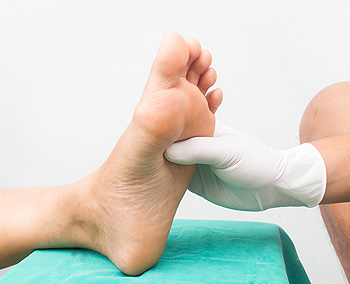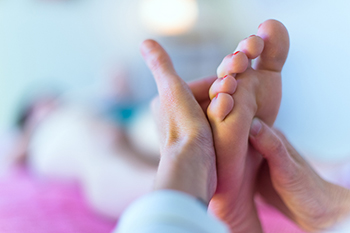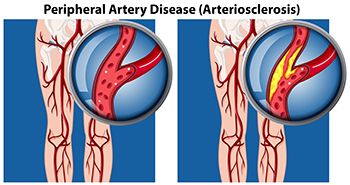Items filtered by date: December 2023
Factors in Choosing Walking Shoes

Choosing the right walking shoes is essential for ensuring a comfortable and enjoyable walking experience. To find the perfect pair of walking shoes, start by determining where you plan to walk, whether it involves avid treks or easy strolls with your dogs on a short woodland path. Prioritize comfort, looking for shoes with a cushioned heel collar, insole, and midsole to maximize comfort during every step. Additionally, opt for shoes that provide flexibility, allowing your toes to move naturally and ensuring a smooth and steady walking motion. Consider the materials used in the shoes. Synthetic materials, often lighter in weight, provide durability without compromising performance during long walks. If you have wide feet, choose shoes with a larger toe box to prevent discomfort and allow ample room for natural toe movement. Check for sufficient arch support in the midsole to protect and support your feet during walks. Choose lightweight shoes to avoid fatigue and enhance endurance during long walks. Lastly, evaluate whether you need waterproof materials based on expected weather conditions. If you need help in navigating the various factors involved in selecting the right walking shoe, it is suggested that you schedule an appointment with a podiatrist for a gait analysis, foot exam, and expert advice.
It is important to find shoes that fit you properly in order to avoid a variety of different foot problems. For more information about treatment, contact our podiatrists from CNY Foot Surgery & Podiatry Care. Our doctors will treat your foot and ankle needs.
Proper Shoe Fitting
Shoes have many different functions. They cushion our body weight, protect our feet, and allow us to safely play sports. You should always make sure that the shoes you wear fit you properly in order to avoid injuries and deformities such as: bunions, corns, calluses, hammertoes, plantar fasciitis, stress fractures, and more. It is important to note that although a certain pair of shoes might be a great fit for someone else, that doesn’t mean they will be a great fit for you. This is why you should always try on shoes before buying them to make sure they are worth the investment. Typically, shoes need to be replaced ever six months to one year of regular use.
Tips for Proper Shoe Fitting
- Select a shoe that is shaped like your foot
- Don’t buy shoes that fit too tight, expecting them to stretch to fit
- Make sure there is enough space (3/8” to ½”) for your longest toe at the end of each shoe when you are standing up
- Walk in the shoes to make sure they fit and feel right
- Don’t select shoes by the size marked inside the shoe, but by how the shoe fits your foot
The shoes you buy should always feel as good as they look. Shoes that fit properly will last longer, feel better, and improve your way of life each day.
If you have any questions, please feel free to contact our office located in East Syracuse, NY . We offer the newest diagnostic and treatment technologies for all your foot care needs.
Managing Diabetic Neuropathy

Diabetic neuropathy, a consequence of prolonged elevated blood sugar levels in individuals with diabetes, affects up to 50 percent of those with the condition. Symptoms of diabetic neuropathy range from pain, tingling, and numbness in the extremities to potential onset without noticeable signs. Peripheral diabetic neuropathy is prevalent, causing discomfort in the toes, feet, and hands. Early diagnosis is essential, and a thorough examination by a podiatrist is suggested. This process can include a foot check for sores and ulcers, along with tests such as the monofilament test, nerve conduction tests, and electromyography. Effective management of diabetic neuropathy involves strict control of blood sugar levels through regular monitoring, adherence to an antidiabetic diet, physical activity, and routine blood pressure checks. Medications can also play a vital role in relieving symptoms. If you have diabetes, it is suggested that you are under the care of a podiatrist can help you to manage this condition.
Diabetic foot care is important in preventing foot ailments such as ulcers. If you are suffering from diabetes or have any other concerns about your feet, contact our podiatrists from CNY Foot Surgery & Podiatry Care. Our doctors can provide the care you need to keep you pain-free and on your feet.
Diabetic Foot Care
Diabetes affects millions of people every year. The condition can damage blood vessels in many parts of the body, especially the feet. Because of this, taking care of your feet is essential if you have diabetes, and having a podiatrist help monitor your foot health is highly recommended.
The Importance of Caring for Your Feet
- Routinely inspect your feet for bruises or sores.
- Wear socks that fit your feet comfortably.
- Wear comfortable shoes that provide adequate support.
Patients with diabetes should have their doctor monitor their blood levels, as blood sugar levels play such a huge role in diabetic care. Monitoring these levels on a regular basis is highly advised.
It is always best to inform your healthcare professional of any concerns you may have regarding your feet, especially for diabetic patients. Early treatment and routine foot examinations are keys to maintaining proper health, especially because severe complications can arise if proper treatment is not applied.
If you have any questions please feel free to contact our office located in East Syracuse, NY . We offer the newest diagnostic and treatment technologies for all your foot and ankle needs.
Are You Suffering From Ingrown Toenails?
Podiatric Foot Therapy

Podiatrists offer a variety of foot therapies and treatments to address various foot and ankle conditions. They conduct comprehensive foot and ankle examinations to diagnose problems and provide pain management solutions for conditions like plantar fasciitis, Achilles tendonitis, and arthritis. Podiatrists may prescribe custom-made orthotic devices to correct issues such as arch support and gait abnormalities. Surgical procedures are performed when necessary, including treatments for bunions, hammertoes, and fractures, in addition to Ingrown toenail removal, wound care, and fungal infections. They provide casting, bracing, and splinting for fractures and deformities. Footwear recommendations, treatment for skin conditions like corns and calluses, and pediatric foot care are all part of the services they offer. Furthermore, podiatrists emphasize preventive care, guiding patients in maintaining overall foot health through proper routines and measures. If you have a foot or ankle issue, it is suggested that you schedule an appointment with a podiatrist for guidance on the proper foot therapies for you.
Foot therapy is often necessary for those recovering from either foot deformities or foot injuries. If you have concerns regarding therapy, consult with our podiatrists from CNY Foot Surgery & Podiatry Care. Our doctors can provide the care you need to keep you pain-free and on your feet.
Most Common Injuries
People who are active or athletes are prone to a variety of injuries. Therefore, it is often important to take part in physical therapy in order to quickly get back on the right track.
What to Do When Injured
Physical Therapy – This specialized treatment will focus on the affected area, speeding up recovery and the overall healing process. It is a proven method that has helped millions of people return from any injury.
During physical therapy you will undergo regimented training to get back into full form. Training is often very difficult, especially at first when the foot feels weak. Physical therapy often involves:
Basic stretching and twisting exercises – getting the feet’s mobility and flexibility up.
Massaging – the therapist will massage the injured area in order to activate the muscles and relax them.
Strengthening Exercises – this allows the muscles in the affected area to regain their full strength, a vital step towards full recovery.
If you have any questions please feel free to contact our office located in East Syracuse, NY . We offer the newest diagnostic tools and technology to treat your foot and ankle needs.
Peripheral Artery Disease and Your Feet

Peripheral artery disease, or PAD, is a condition that affects the arteries, causing narrowing and restricting blood flow, primarily to the lower limbs and feet. It is more prevalent among people aged 50 to 75, with more women than men affected. The hallmark symptom of PAD is intermittent pain in one or both calves during physical activity, which subsides with rest. This discomfort stems from the narrowed femoral artery, which hinders adequate delivery of blood and oxygen to calf muscles and feet during movement. Walking uphill or climbing stairs may intensify the pain. In severe cases, where blood supply is significantly reduced, individuals may experience pain, particularly at night. This type of pain typically is felt in the toes and feet. Other signs of peripheral artery disease include poor hair and toenail growth cool feet, and weak or absent pulses in the arteries of the feet. If left untreated, PAD can lead to complications such as skin ulcers and, in rare cases, gangrene. For that reason, if you believe you have developed peripheral artery disease, it is suggested that you schedule regular appointments with a podiatrist who is trained to manage symptoms effectively. A podiatrist can assess circulation, identify potential issues, and provide guidance on lifestyle modifications that can improve your overall foot health.
Peripheral artery disease can pose a serious risk to your health. It can increase the risk of stroke and heart attack. If you have symptoms of peripheral artery disease, consult with our podiatrists from CNY Foot Surgery & Podiatry Care. Our doctors will assess your condition and provide you with quality foot and ankle treatment.
Peripheral artery disease (PAD) is when arteries are constricted due to plaque (fatty deposits) build-up. This results in less blood flow to the legs and other extremities. The main cause of PAD is atherosclerosis, in which plaque builds up in the arteries.
Symptoms
Symptoms of PAD include:
- Claudication (leg pain from walking)
- Numbness in legs
- Decrease in growth of leg hair and toenails
- Paleness of the skin
- Erectile dysfunction
- Sores and wounds on legs and feet that won’t heal
- Coldness in one leg
It is important to note that a majority of individuals never show any symptoms of PAD.
Diagnosis
While PAD occurs in the legs and arteries, Podiatrists can diagnose PAD. Podiatrists utilize a test called an ankle-brachial index (ABI). An ABI test compares blood pressure in your arm to you ankle to see if any abnormality occurs. Ultrasound and imaging devices may also be used.
Treatment
Fortunately, lifestyle changes such as maintaining a healthy diet, exercising, managing cholesterol and blood sugar levels, and quitting smoking, can all treat PAD. Medications that prevent clots from occurring can be prescribed. Finally, in some cases, surgery may be recommended.
If you have any questions, please feel free to contact our office located in East Syracuse, NY . We offer the newest diagnostic and treatment technologies for all your foot care needs.




